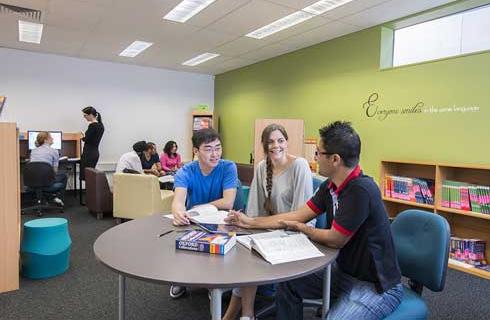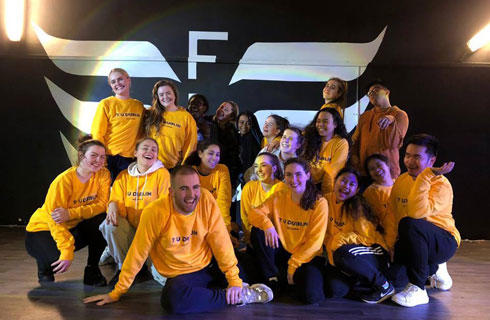- IDP China>
- 课程库>
- 工程与技术>
- 工程技术>
- 机器人技术>
- Master of Science in Aerospace Engineering (Controls, Autonomy and Robotics)
Master of Science in Aerospace Engineering (Controls, Autonomy and Robotics)

学历文凭
Masters Degree

专业院系
Department of Aerospace Engineering and Engineering Mechanics

开学时间

课程时长

课程学费

国际学生入学条件
Hold a bachelor of science degree in aerospace engineering or engineering mechanics, or in a closely related field of engineering from an accredited institution.
Have a minimum 3.0 (on a 4.0 scale) grade point average (GPA) in junior- and senior-level work and in any graduate work already completed. Average GPA and GRE numbers of applicants, admitted students and entrants to our program are available at the UT Office of Graduate Admissions website
General Test of the Graduate Record Examination (GRE) Requirement The GRE test is required for Spring, Summer and Fall admissions.
Submit official transcripts from previous colleges or universities.
Upload a Statement of Purpose and Resume (or CV).
Three Letters of Recommendation
A grade-point average (GPA) of at least 3.0 (on a 4.0 scale) or a comparable GPA in upper-division workjunior- and senior-level coursesand in any graduate work already completed is also required.
TOEFL: 79 on the Internet-based test (iBT)
IELTS: An overall band of 6.5 on the Academic Examination
IDP—雅思考试联合主办方

雅思考试总分
6.5
- 雅思总分:6.5
- 托福网考总分:79
- 托福笔试总分:550
- 其他语言考试:NA
CRICOS代码:
申请截止日期: 请与IDP联系 以获取详细信息。
课程简介
相关申请
 预科
预科 奖学金
奖学金 实习机会
实习机会 在校学习
在校学习 跨境学习
跨境学习 校园授课-线上开始
校园授课-线上开始 在线/远程学习
在线/远程学习
开学时间&学费
学费信息仅供参考,请与IDP联系以获取详细信息
| 开学时间 | 时长 | 学费 | 地点 |
|---|
学校排名

世界排名39
数据源:
泰晤士高等教育世界大学排名
关于德克萨斯大学奥斯汀分校

作为一所长期排名Top15的美国公立大学,UT-Austin算得上是实至名归。位于奥斯汀大学城内的校园拥有总人数排名全美第5的大学人口。提供常青藤级别高等教育的UT-Austin,学费仅仅保持在一般公立大学的水平,难怪每年都能吸引50000多名学生在此就读。UT-Austin 135个专业中,属商科和工程学专业最为强势。本科生除了可以在10个本科商科专业中任选其一之外,还有机会参加专门为MBA学生设计的快速商务课程。工程学方面,UT-Austin所有的本科工程学专业全部至少排名美国Top20,其中很多属于全美10强的行列。用学生自己的话说,我们的工程学毕业生不用找工作,而是被工作找。奥斯汀不是一个典型的大学城,但它可以算是去UT的决定性因素之一。位于第六大道的夜生活中心,充满了各种酒吧和餐馆,在这里你可以欣赏到各种专业级的音乐表演,从爵士乐到摇滚到蓝调音乐到民谣。奥斯汀的另外一个名字是“蝙蝠城”,春天和夏天有许多墨西哥皱鼻蝙蝠生活在国会大道桥的下面。这是北美最大的城市蝙蝠群体。和现场音乐会一样,抓蝙蝠是奥斯汀最为流行的活动。
本校相关课程

Doctor of Philosophy in Computer Science
学历文凭
Ph.D.
开学日期
课程费用总额


Doctor of Philosophy in Marine Science
学历文凭
Ph.D.
开学日期
课程费用总额


Doctor of Philosophy in Mathematics
学历文凭
Ph.D.
开学日期
课程费用总额


Doctor of Philosophy in Microbiology
学历文凭
Ph.D.
开学日期
课程费用总额


Doctor of Philosophy in Neuroscience
学历文凭
Ph.D.
开学日期
课程费用总额


Doctor of Philosophy in Physics
学历文凭
Ph.D.
开学日期
课程费用总额

其他相关课程

机电系统工程哲学博士
 西蒙菲莎大学
西蒙菲莎大学学历文凭
Ph.D.
开学日期
课程费用总额


工程物理文凭-机电一体化
 菲莎河谷大学
菲莎河谷大学学历文凭
Bachelor Degree
开学日期
课程费用总额


安大略大学机器人与高级自动化专业研究生证书
 瀑布学院
瀑布学院学历文凭
Graduate Certificate
开学日期
课程费用总额


Ontario College Graduate Certificate in Robotics and Automation
 瀑布学院
瀑布学院学历文凭
Graduate Certificate
开学日期
课程费用总额


Ontario College Advanced Diploma in Product Engineering - Advanced Manufacturing and Robotics
 卡纳多学院
卡纳多学院学历文凭
Bachelor Degree
开学日期
课程费用总额


Bachelor of Applied Science in Electrical Engineering - Mechatronics
 女王大学
女王大学学历文凭
Bachelor Degree
开学日期
课程费用总额










 美国
美国